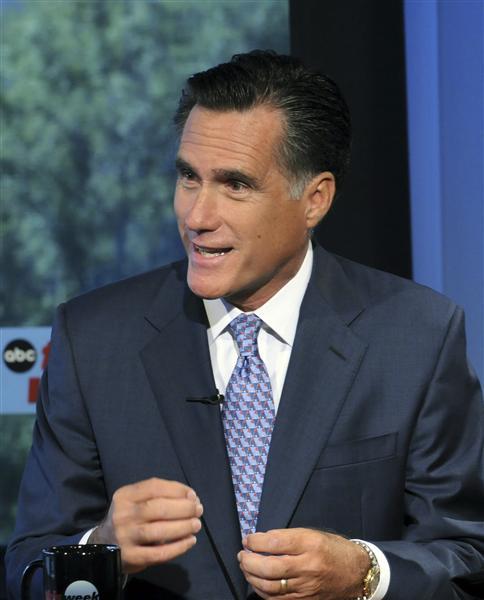Indeed, Mitt 3.0 hopes to play up his past as a corporate turnaround artist and focus less on being “just one of the guys.” While Romney tends to poll well with upper-middle-class, college-educated voters, he has traditionally struggled with the party’s blue-collar base. The campaign appears now to be betting that even if Tea Partiers can’t relate to him, they’ll be impressed enough by his economic expertise to hold their noses and vote for him.

When Mitt Romney takes the stage Thursday afternoon to deliver his high-stakes health-care speech, the prospective presidential candidate won’t really be railing against individual mandates, frivolous malpractice lawsuits, or even “Obamacare.” He’ll be taking aim at himself.
That’s because Romney’s political persona is, in many ways, similar to Microsoft’s operating system: always updating and evolving with an eye toward efficiency, but not without its bugs. So when he unveils his plan at the University of Michigan to repeal and replace the federal health-care reforms he piloted as Massachusetts governor, his campaign will be taking its first step toward another “Romney reboot,” one his supporters hope will last through November 2012.
The governor who boldly overhauled his state’s health-care system was Mitt 1.0, a pragmatic problem-solver who relied on his venture-capitalist instincts, not conservative dogma, to govern.
The philosophy of Mitt 1.0 is perhaps best expressed in the response Romney gave a Boston magazine reporter when asked for the one lesson from the private sector he had found most helpful in politics. “I guess it is that there is no problem that’s insoluble,” Romney said. “Good decisions are made with good data and solid analysis.”
This approach worked relatively well for him in Massachusetts, where he had run as a moderate Republican in a largely liberal state. He could afford to be iconoclastic, largely unburdened by the demands of ideology as he experimented with policy solutions.
“Everything about him is elite, and I’m not sure if there’s a way for him to connect to some voters [in the base],” said a supporter. “But he’s a smart, strong leader, and hopefully people will be able to see that.”
But by the 2008 presidential primaries, Romney had seen the need for a reboot. Eager to please the grassroots base of the GOP, his campaign cast Mitt 2.0 as a culture warrior-mastering pro-life rhetoric, crusading against illegal immigration, and even delivering the commencement speech at Pat Robertson’s Regent University. In an apparent effort to appeal further to Republican primary voters, Romney claimed he was a lifelong hunter and was mocked once it came out that had only been hunting twice in his life.
This time around, the Romney campaign’s message to Republican primary voters appears to boil down to this: He may be an elitist, but he’s a heck of a lot better than the guy in the White House.
“Everything about him is elite, and I’m not sure if there’s a way for him to connect to some voters [in the base],” said one prominent Romney supporter with knowledge of the campaign’s strategy who requested anonymity to speak without Romney’s permission. “But he’s a smart, strong leader, and hopefully people will be able to see that.”
Indeed, Mitt 3.0 hopes to play up his past as a corporate turnaround artist and focus less on being “just one of the guys.” While Romney tends to poll well with upper-middle-class, college-educated voters, he has traditionally struggled with the party’s blue-collar base. The campaign appears now to be betting that even if Tea Partiers can’t relate to him, they’ll be impressed enough by his economic expertise to hold their noses and vote for him.
“He may not be the guy Ohio voters want to sit down with and have a beer and eat chicken,” said Chuck Warren, a Republican political consultant in Utah who isn’t working for Romney but is impressed by his business credentials. “But look, he understands economics, he can help make some jobs, and hopefully he can get our country’s finances in order.”
It’s a point the Romney camp would like to make much more aggressively. But as Warren points out, it is all but impossible to gain traction until Romney can get people to move past the health-care issue.
Warren’s suggestion?
“As a Red Sox fan, maybe he should use a baseball analogy. You know, ‘I swung for the fences on health care and I missed.'”
Batter up.